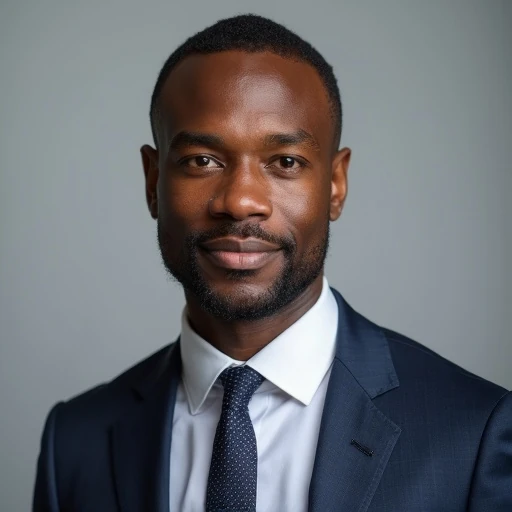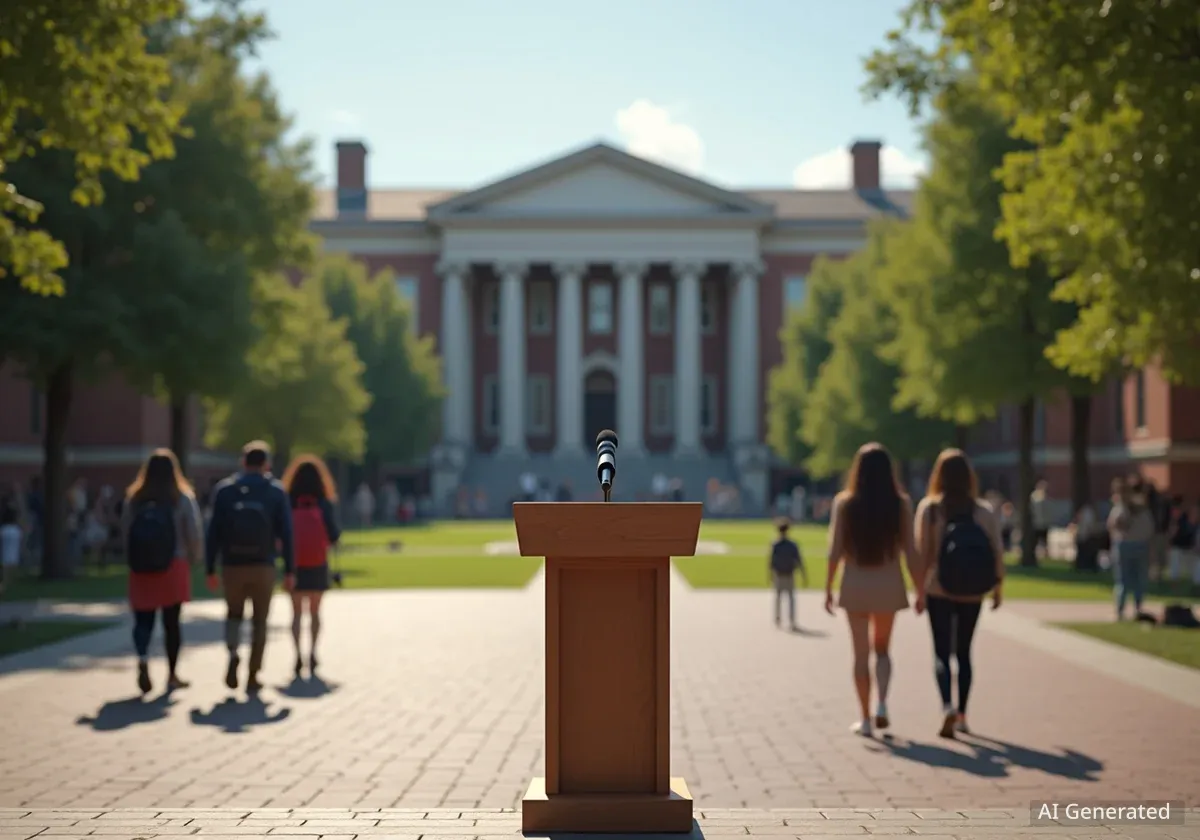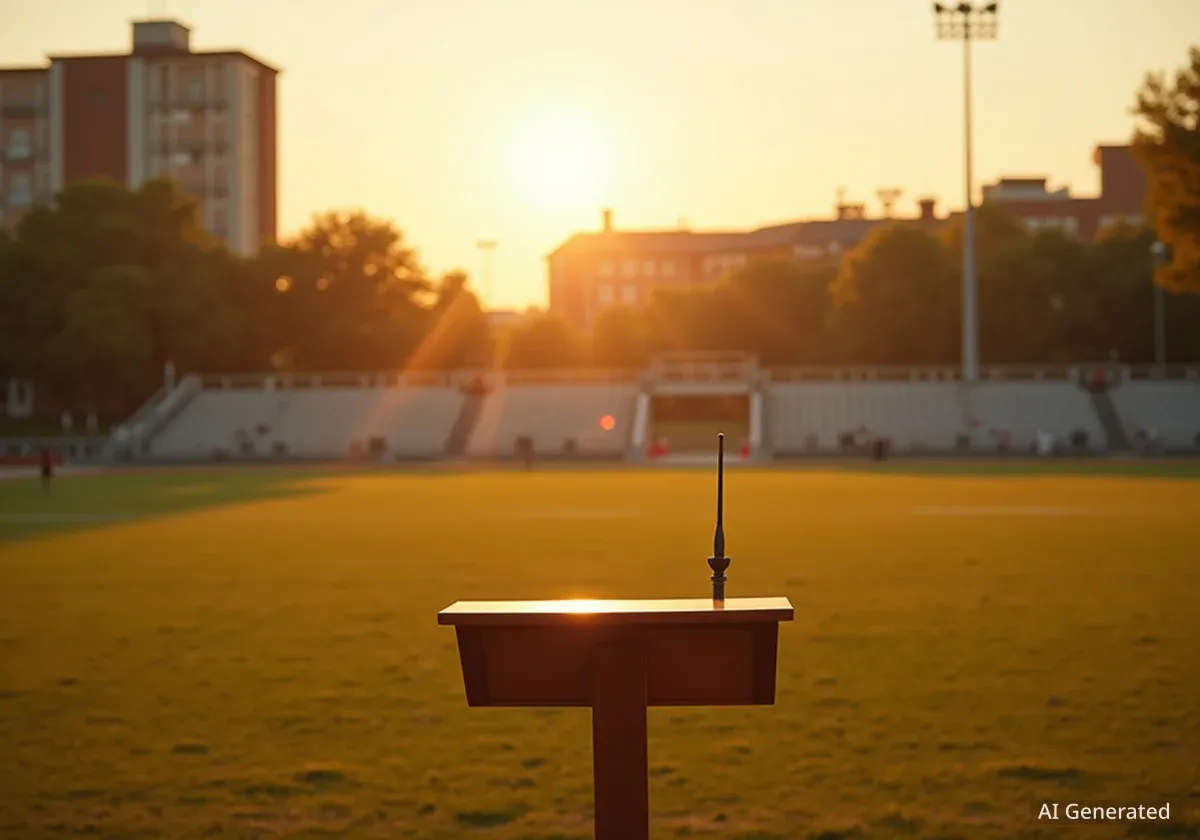Iowa Attorney General Brenna Bird is spearheading a multi-state initiative to uphold free speech on college campuses. This effort aims to prevent universities from imposing excessive security costs or disproportionate measures that could suppress diverse viewpoints. The initiative follows a recent, tragic event at Utah Valley University.
The letter, issued by Attorney General Bird and 16 other state attorneys general, warns university officials against practices that might inadvertently, or intentionally, limit open debate. It specifically addresses concerns about security fees that could target specific groups or events based on their content.
Key Takeaways
- Iowa AG Brenna Bird leads 16 states in advocating for free speech on college campuses.
- The letter warns against 'Assassin's Veto' and disproportionate security fees.
- It cites a 1992 Supreme Court case on content-based security fee restrictions.
- Universities must ensure transparent, non-discriminatory security and facility policies.
- States will investigate complaints regarding free speech suppression.
Protecting Free Speech on University Campuses
The core of this initiative is to ensure that universities remain forums for robust discussion. Attorney General Bird emphasized that the right to free speech must be protected, especially in academic settings. College campuses traditionally serve as places where different ideas are exchanged and debated openly.
This push comes after the Iowa Board of Regents directed public universities to investigate and potentially sanction employees who made negative comments about conservative influencer Charlie Kirk. Kirk was tragically killed on September 10 at Utah Valley University during a public debate event. This incident highlighted the need for institutions to balance safety with the preservation of open dialogue.
"The tragedy of Charlie Kirk’s assassination is a sobering reminder that the right to free speech must be protected," Attorney General Bird stated in a press release. "Charlie was murdered while debating on a university campus, a place where the free exchange of ideas should be encouraged; we cannot allow the actions of an assassin to stop free speech in any way. Colleges and universities must take steps to keep their students safe while preserving free discussion and open debate."
Legal Precedent and Security Fees
The letter references a significant U.S. Supreme Court case, Forsyth County v. Nationalist Movement (1992). This ruling established that requiring 'exorbitant' security fees for certain groups or events, based on the content or viewpoint of the speech, can violate the First Amendment. This legal principle is central to the attorneys general's argument.
The states argue that security costs should not become a barrier to speech, especially when those costs are applied unevenly. Universities must ensure that their policies for event security are neutral regarding content and viewpoint. This means that the potential for controversy or protest should not automatically lead to higher fees for specific speakers or organizations.
Fact Check: University of New Mexico Case
- In 2023, the University of New Mexico tried to charge Turning Point USA over $5,000 for security.
- This fee was for an event featuring conservative speaker Riley Gaines.
- A judge issued a preliminary injunction against the university, halting the collection of these fees.
Transparency and Non-Discrimination in University Policies
The letter stresses the importance of clear and fair security policies. University security policies must be transparent and applied without discrimination. This ensures that all groups, regardless of their political or social views, are treated equally when organizing events on campus.
Security fees, if implemented, must be determined in a 'content-neutral and viewpoint-neutral manner.' This requirement extends to facility use policies as well. The primary responsibility for ensuring the safety of event attendees and participants rests with the institution. This responsibility should not be shifted in a way that creates obstacles for certain types of speech.
For example, if a university advertises itself as a venue for public speech and debate, it cannot then impose stricter scrutiny or higher fees on conservative speakers or events while exempting politically neutral or liberal ones. Such actions could potentially violate state Consumer Fraud Acts or Unfair and Deceptive Acts and Practices laws.
Background on Free Speech and Universities
Public universities, as state actors, are bound by the First Amendment. This means they cannot restrict speech based on its content or viewpoint, except in very limited circumstances. The debate often centers on balancing free speech rights with the need to maintain order and safety on campus. Security costs can become a contentious issue when they are perceived as a tool to silence unpopular or controversial voices.
Multi-State Effort and Future Investigations
Attorney General Bird's letter was signed by the attorneys general from 16 other states. These states include Alabama, Alaska, Arkansas, Florida, Georgia, Indiana, Kansas, Louisiana, Missouri, Montana, Nebraska, Oklahoma, South Carolina, South Dakota, Texas, and Utah. This broad coalition highlights a shared concern among state legal leaders regarding free speech on college campuses.
Each of these state leaders has committed to investigating any complaints related to these issues that are made against universities within their jurisdictions. This means that universities in these states will face scrutiny if their security or facility policies are found to be discriminatory or to suppress free speech.
The letter concludes with a direct message to university administrators:
"We trust that you will continue to take steps to keep your campuses safe. And we also trust that you won’t use safety as a pretext to silence debate, at a time when it is sorely needed."
This coordinated action by multiple state attorneys general signals a strong commitment to protecting open discourse in higher education. It also serves as a warning to universities that they must carefully review their policies to ensure they align with First Amendment principles and state consumer protection laws.
Impact on Campus Climate
This initiative could significantly influence how universities manage events and guest speakers. It encourages institutions to prioritize open dialogue while maintaining a safe environment. The focus on transparent and non-discriminatory practices aims to foster a campus climate where all voices can be heard without undue financial or logistical burdens.
The involvement of state attorneys general means that universities will face legal consequences if they fail to comply with these guidelines. This could lead to a review and potential revision of current campus policies across the involved states. The goal is to prevent situations where security concerns are used to limit academic freedom or political expression.





